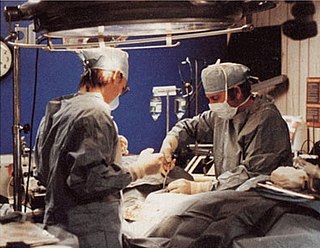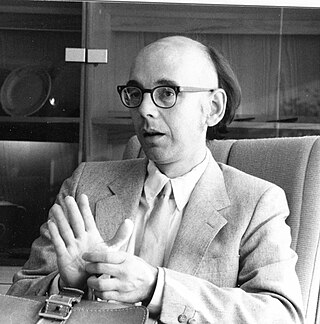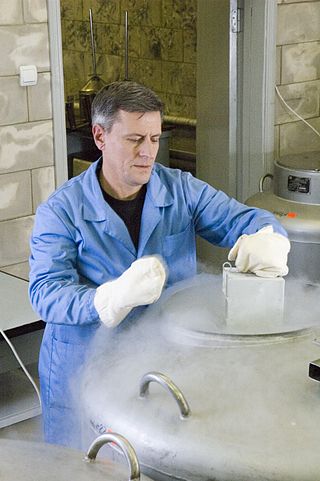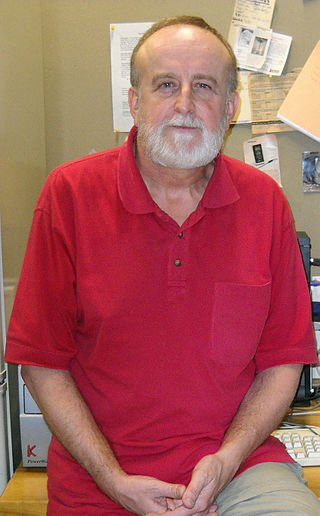
Cryonics is the low-temperature freezing and storage of human remains, with the speculative hope that resurrection may be possible in the future. Cryonics is regarded with skepticism within the mainstream scientific community. It is generally viewed as a pseudoscience, and its practice has been characterized as quackery.
Cryobiology is the branch of biology that studies the effects of low temperatures on living things within Earth's cryosphere or in science. The word cryobiology is derived from the Greek words κρῧος [kryos], "cold", βίος [bios], "life", and λόγος [logos], "word". In practice, cryobiology is the study of biological material or systems at temperatures below normal. Materials or systems studied may include proteins, cells, tissues, organs, or whole organisms. Temperatures may range from moderately hypothermic conditions to cryogenic temperatures.
21st Century Medicine (21CM) is a California cryobiological research company which has as its primary focus the development of perfusates and protocols for viable long-term cryopreservation of human organs, tissues and cells at temperatures below −100 °C through the use of vitrification. 21CM was founded in 1993.

The National Academy of Sciences of Ukraine is a self-governing state-funded organization in Ukraine that is the main center of development of science and technology by coordinating a system of research institutes in the country. It is the main research oriented organization along with the five other academies in Ukraine specialized in various scientific disciplines. NAS Ukraine consists of numerous departments, sections, research institutes, scientific centers and various other supporting scientific organizations.
The American Cryonics Society (ACS), also known as the Cryonics Society of America, is a member-run, California-based, 501(c)(3) tax-exempt nonprofit organization that supports and promotes research and education into cryonics and cryobiology. Cryonics is the low-temperature freezing and storage of a human corpse or severed head, with the speculative hope that resurrection may be possible in the future.
Jerry Donnell Leaf was Vice President and Director of the cryonics organization Alcor Life Extension Foundation, and President of the cryonics service firm Cryovita, Inc. until his death in 1991.

Thomas K. Donaldson was a mathematician and well-known cryonics advocate. He was born in the state of Kentucky in the United States, and took his Ph.D. from the University of Chicago in 1969. He also lived in Sunnyvale, California, and for many years in Canberra, Australia, where he taught mathematics at Australian National University. He founded both the Cryonics Association of Australia and the Institute for Neural Cryobiology, which has funded ground-breaking research in cryopreservation of brain tissue.
Gregory M. Fahy is a California-based cryobiologist, biogerontologist, and businessman. He is Vice President and Chief Scientific Officer at Twenty-First Century Medicine, Inc, and has co-founded Intervene Immune, a company developing clinical methods to reverse immune system aging. He is the 2022–2023 president of the Society for Cryobiology.

The Institute for Problems of Cryobiology and Cryomedicine in Kharkiv is one of the institutes of the National Academy of Science of Ukraine, and is the largest institute devoted to cryobiology research in the world.
Cryochemistry is the study of chemical interactions at temperatures below −150 °C. It is derived from the Greek word cryos, meaning 'cold'. It overlaps with many other sciences, including chemistry, cryobiology, condensed matter physics, and even astrochemistry.
Cryonics – Freeze Me is a television documentary programme created by ZigZag Production for Five in 2006 for in their Stranger than Fiction series. The program's main topic is cryonics and mainly features interviews with Alcor Life Extension Foundation staff or Alcor members. The documentary is narrated by Michael Lumsden. Directed by Virginia Quinn.

Ernest John Christopher Polge was an English biologist, most noted for his work in cryopreservation.

Kenneth B. Storey is a Canadian scientist whose work draws from a variety of fields including biochemistry and molecular biology. He is a Professor of Biology, Biochemistry and Chemistry at Carleton University in Ottawa, Canada. Storey has a world-wide reputation for his research on biochemical adaptation - the molecular mechanisms that allow animals to adapt to and endure severe environmental stresses such as deep cold, oxygen deprivation, and desiccation.

The International Institute of Refrigeration (IIR), is an independent intergovernmental science and technology-based organization which promotes knowledge of refrigeration and associated technologies and applications on a global scale that improve quality of life in a cost-effective and environmentally sustainable manner, including:
The following outline is provided as an overview of and topical guide to biophysics:
Cryobiology is a bimonthly peer-reviewed scientific journal covering cryobiology. It was established in 1964 and is published by Elsevier on behalf of the Society for Cryobiology, of which it is the official journal. The editor-in-chief is D.M. Rawson. According to the Journal Citation Reports, the journal has a 2017 impact factor of 2.050.
John Dennis Biggers was a British and American reproductive biologist and reproductive physiologist who helped pioneer in vitro fertilisation. He played a founding role in the scientific study of reproductive physiology, won many scientific awards for developing technology which would become central to human IVF, and engaged in public outreach regarding the ethics of artificial fertilisation.

The Brain Preservation Foundation is an American non-profit organization with the goal of promoting validated scientific research and technical services development in the field of whole brain preservation for long-term static storage, as well as working on the accessibility, affordability, and sustainability of this technology. It also provides public education on topics such as the neural foundations of memory, brain scanning techniques, brain preservation, and mind uploading.
John Henry Crowe is an American comparative physiologist. He is primarily known for his work on the mechanisms dehydration and rehydration of cryptobiotic organism, including tardigrades. His work included the discovery of trehalose as a cryoprotectant for cell membranes and the use of trahalose and other cryoprotectants for the preservation of human blood components including platelets for longer-term storage
Allison Hubel is an American mechanical engineer and cryobiologist who applies her expertise in heat transfer to study the cryopreservation of biological tissue. She is a professor of mechanical engineering at the University of Minnesota, where she directs the Biopreservation Core Resource and the Technological Leadership Institute, and is president-elect of the Society for Cryobiology.







